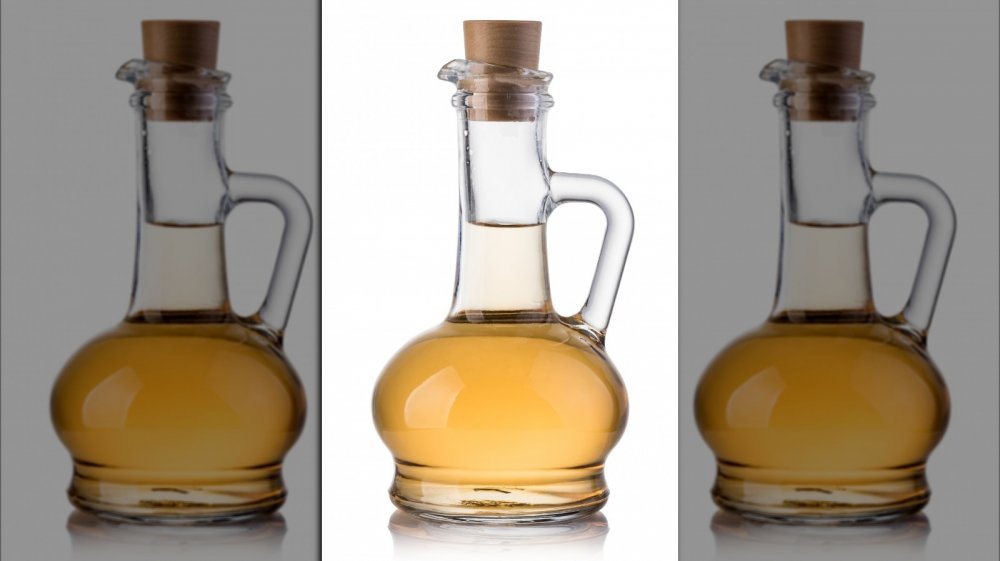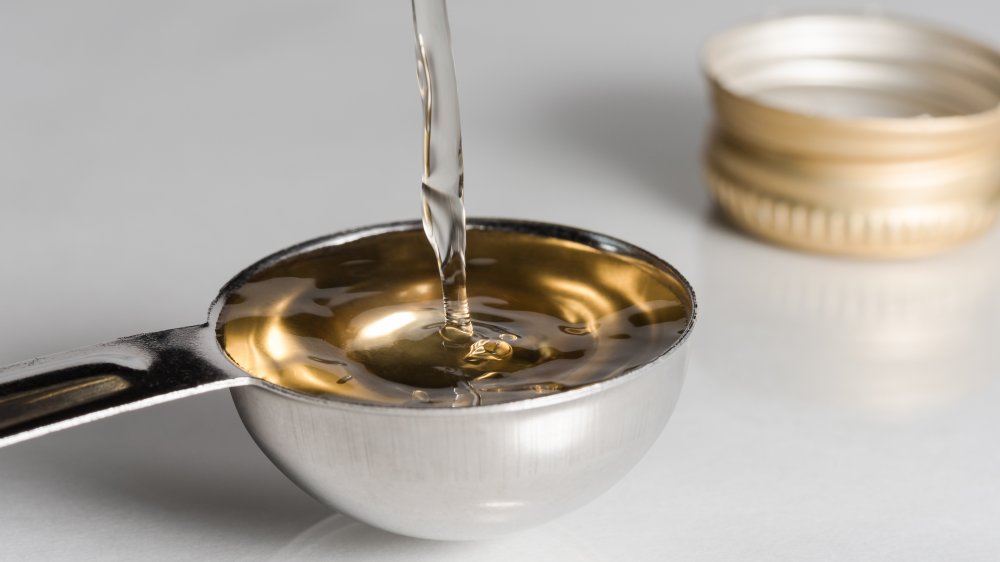Why You Should Always Have White Wine Vinegar In Your Kitchen
Vinegar is one of those magical ingredients that have the power to create a bright, balanced, satisfying flavor our taste buds love. It fulfills the "sour" role in the five different taste sensations of sweet, salty, sour, bitter, and umami and Cook Smarts says vinegar's sourness can actually balance the flavor of sweet, spicy, and bitter foods. Perusing the shelves in your grocery store will reveal several different types of vinegar to choose from but there's one that stands out among the rest for its unique flavor and versatility in recipes: white wine vinegar.
The Kitchn describes white wine vinegar as light-bodied and mild-flavored, but bright and tangy. It's like someone took that old acidic distilled vinegar and put a soft, subdued VSCO filter on it to achieve something more mellow and palatable. But white wine vinegar is actually made differently than regular distilled vinegar, and the process imparts some special nuance that makes it a must for your kitchen.
White wine vinegar adds bright flavor to food
Vinegar is made from alcohol (whether it be wine, beer, mead, etc.) that has been fermented. According to Recipe Lion, distilled vinegar is made from grain alcohol similar to vodka, which imparts a much different flavor than the wine that white wine vinegar comes from. White wine vinegar ends up tasting more balanced and mild because it retains some of the subtleties from the original wine grapes used to produce it. These wine-like characteristics make white wine vinegar an ideal addition for many recipes.
If you're unsure of when to reach for white wine vinegar, Bon Appetit suggests a good rule of thumb. They say a dish that pairs well with white wine will usually benefit from the light, delicate flavor of white wine vinegar, as opposed to any other kind. Try using it to dress tender greens or to deglaze your pan before making a buttery pan sauce. The Spruce Eats recommends adding white wine vinegar to chicken or fish dishes and says it's a natural choice for a pickling liquid. Masterclass even suggests adding 3/4 of a cup of white wine vinegar to a braising liquid for a bright, acidic flavor that won't become muddled as the liquid reduces. Sounds like it's time to clear a permanent spot on the shelf for a bottle of this game-changing ingredient.

